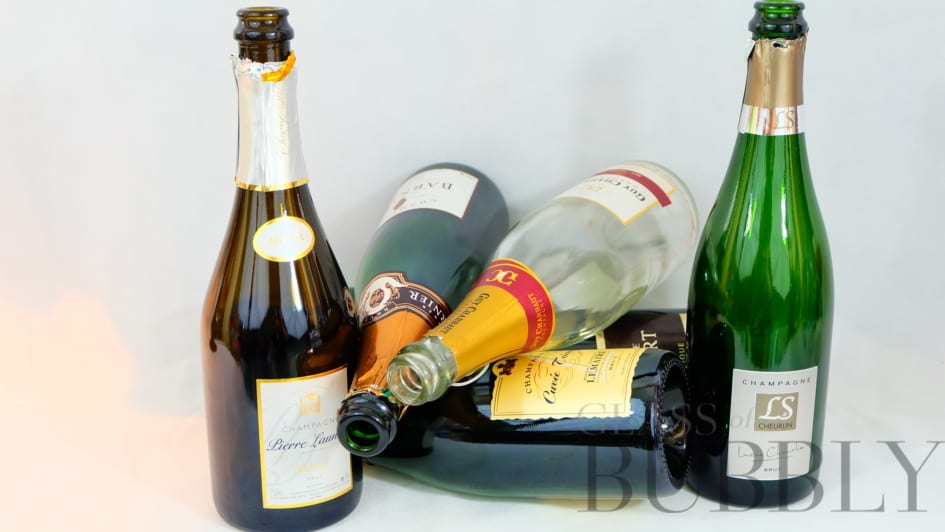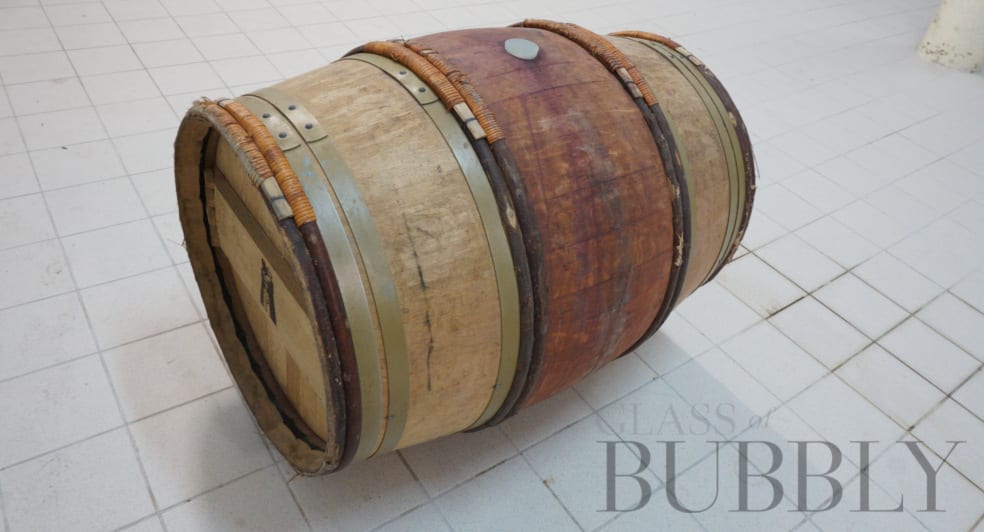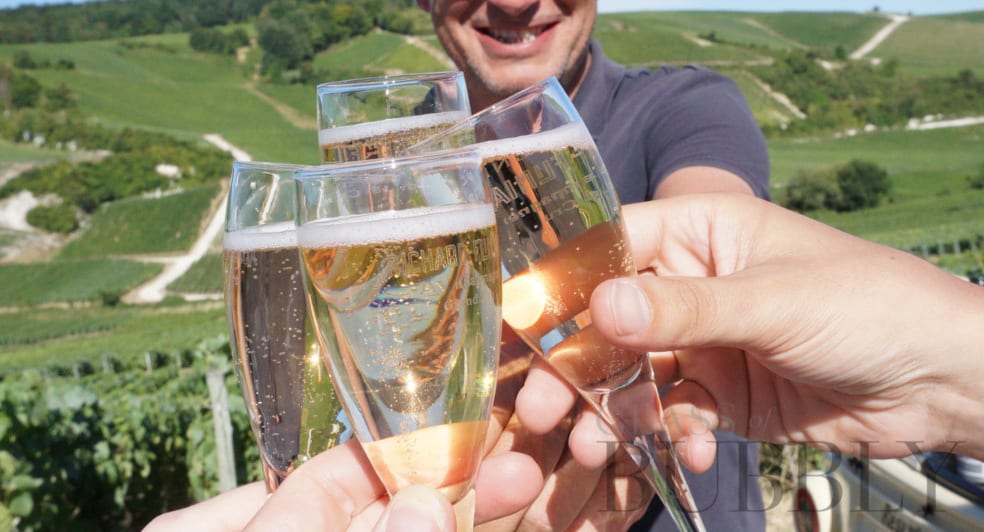What’s inside my bottle of Champagne?
4th August 2020

‘Grapes of course’ you will say and yes, you will be correct! Though, not only is Champagne made from grapes and via certain varieties of grapes only, there will be a selection of other ingredients that you are likely to be drinking when you are enjoying a glass of bubbly from this famous wine region.
Grape varieties used for making Champagne:
- Chardonnay
- Pinot Noir
- Pinot Meunier
- Pinot Gris
- Pinot Blanc
- Arbanne
- Petit Meslier
“Is it Champagne that you are drinking? Many times when I visit friends and they say they have a bottle of Champagne chilled for me to enjoy, it usually isn’t Champagne at all! Most consumers, and I fully understand why as years ago I did likewise, will think that a fizzy wine of any kind is Champagne. Check the bottle, only real Champagne from France can use the word on the bottle*.”
Champagne has strict regulations of production (Appellation d’Origine Controlée / AOC). There are 321 villages that host the vines and are allowed to produce Champagne that are classified into three sections which are, scaling upwards in quality, ‘Autre Cru’, ‘Premier Cru’ and ‘Grande Cru’ (These references are known as the ‘Echelle des Crus’).

Champagne barrel
Champagne can be made directly from the Champagne houses themselves who have the production equipment on-site required to those who use a co-operative service where their wines are made at a centralised location thus they do not need the production equipment. There are also those Champagne labels that, in simple terms, simply purchase the bottles of Champagne unlabelled and brand them with their own labels (though they still have to state the original producers of the Champagne).
So, Champagne is in fact quite a varied product and though made in a set way with centuries of history and knowledge, there will still be slight variations in ingredients and amounts of ingredients from sugars added to them being vegan or not.
“What is a vintage Champagne? A vintage Champagne does not necessarily mean or refer to the wine as being old. A vintage refers to the ‘harvest’ and that the grapes used to produce the Champagne are all from the same year. Champagne houses will decide if the harvest of that year is good enough quality to produce a vintage and only then can they state this on the bottle with the year and ‘millesimé’. Some wines may be made up of grape juice of previous vintage years, though they can not be classified as vintage.”
Main ingredients of Champagne are usually:
- Grapes
- Yeast (saccharmonyces)
- Sugar (cane / beet)
- Sulfites
- Fining agents (gelatin, casein, isinglass, egg whites and skimmed milk)
- Liqueur d’expédition (brandy, ascorbic acid, citric acid, copper sulfate, sulfur dioxide)
- Quercus suber cork oak (can include cork particles that are glued and may also contain food-grade silicone).

Is Champagne suitable for Vegans
Firstly, let me calm our vegan and vegetarian readers to say that Champagne producers have progressed much in recent years with a growing care for both the environment in production as well as respecting the requirements of drinkers regarding ingredients. Many producers will be proud to state they are vegan friendly with stickers showcasing this on the back label as well as being gluten-free and wheat-free. PS: If you are in to experiencing older Champagne, vintages, then it could pay off to research the Champagne house directly to know where they were with ingredients during that years production methods.
“I would say that yes, each glass you drink may contain a tiny bit of cork, Quercus suber, and especially if you are enjoying older Champagne bottles that have been disgorged and stored with their cork and cage for many years. I have had some bottles of Champagne of vintages many decades ago that part of the cork has disintegrated thus particles are in the wine (usually these Champagne require careful pouring having been stored without movement for a few days or they should be slowly decanted).”
How much sugar is in a bottle of Champagne?
This can be a little varied in responses as there are varied styles of Champagne that have extra or no sugars added. If we look at the most common style of Champagne, brut, then approx 6-9 grams of sugar can be found in a standard bottle (0.75 litres).
How many calories are in a bottle of Champagne?
There are again many results and figures on this subject. Though it is usually assumed that there are around 600 to 650 calories, on average, per bottle of Champagne.
* There is only one exception that currently exists. The wine region of California, USA, allows the usage of the word ‘Champagne’ on labels following a long and somewhat ongoing legal battle between France / CIVC (Comite Interprofessionnel du Vin de Champagne) and the USA. It’s a long story and it is usually referred to as the 100 Year Old Loophole.
![]()
Christopher Walkey
Co-founder of Glass of Bubbly. Journalist and author focused on Champagne & Sparkling Wines and pairing them with foods.
